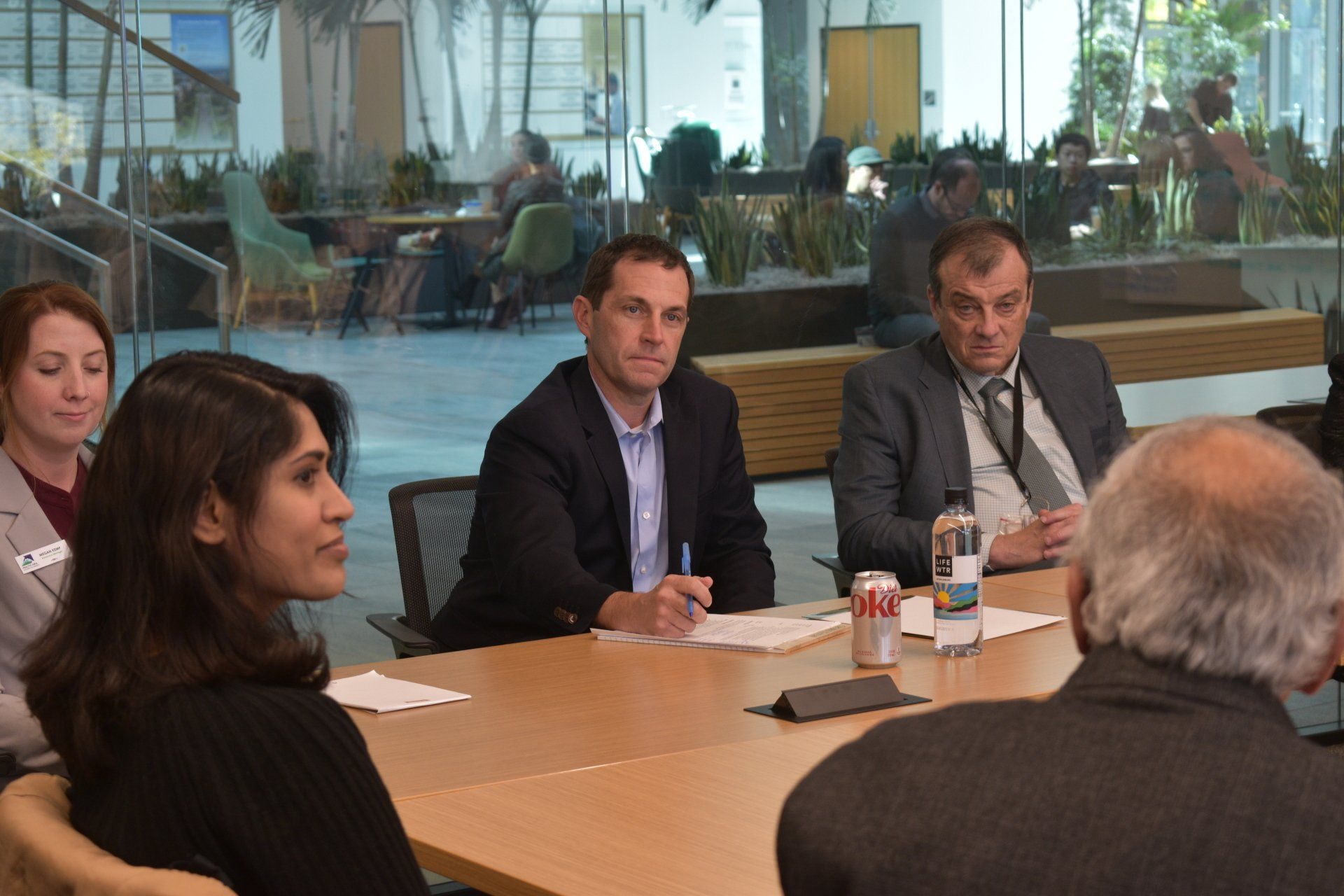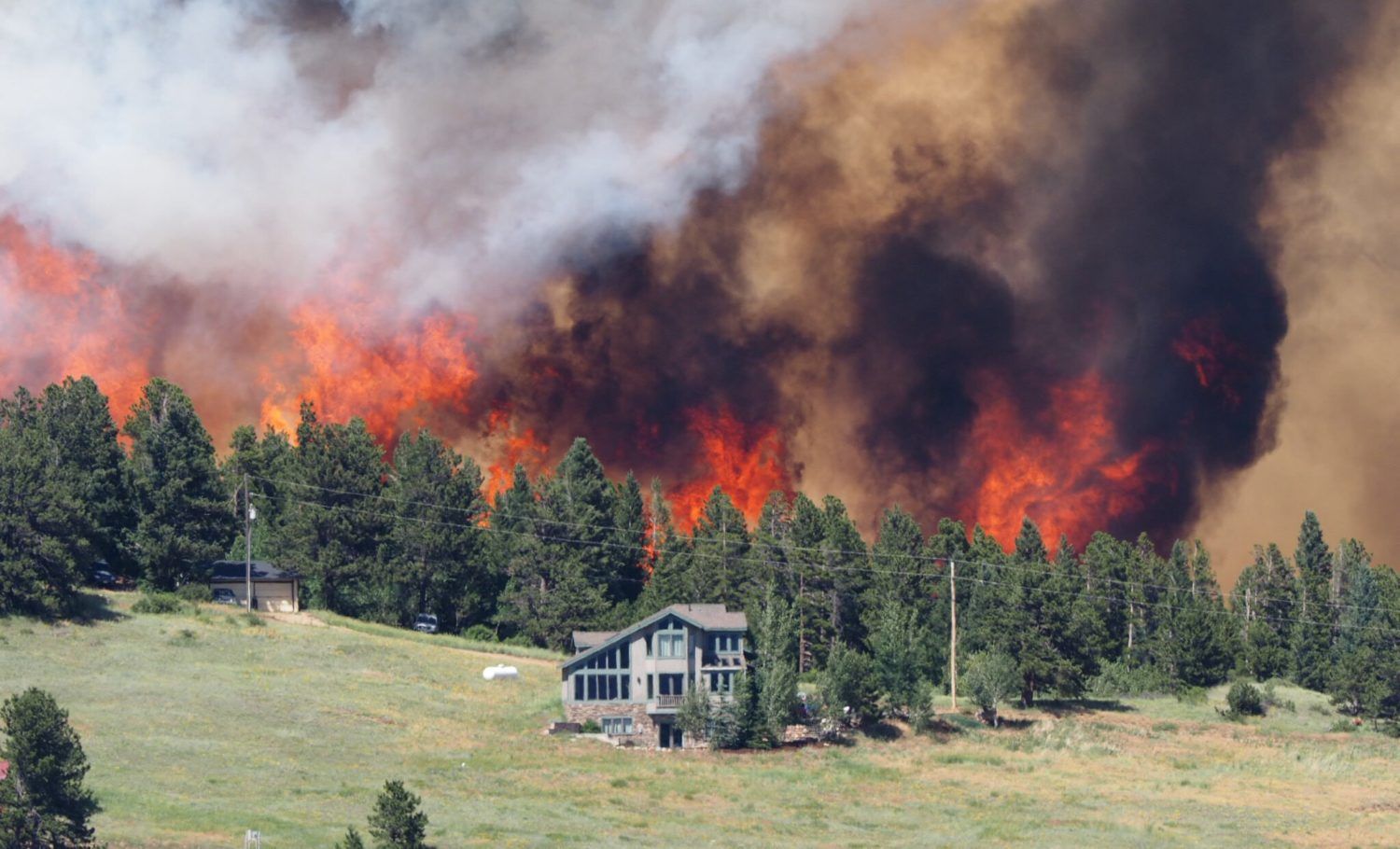New report shows glaring gap between Colorado’s climate pollution reduction goals and state policies aimed at curbing that pollution
Nick Passanante • March 2, 2020
State policies to reduce climate pollution don't keep pace with climate change impacts
If Colorado hopes to meet its pollution reduction goals outlined by the state’s Climate Action Plan
and clean air laws, then business as usual in current state policies won’t be enough according to a new study commissioned by the Environmental Defense Fund and Western Resource Advocates.
The study found that Colorado’s pollution reduction goals of 26 percent reduction by 2025, 50 percent by 2030 and 90 percent by 2050 were unattainable under current policies. In fact, with no change to current policy, Colorado will exceed its emission goals by 30 metric tons of greenhouse gas pollution in 2025 and 46 million metric tons in 2030, the study showed. You can see the full analysis.
The gaps highlighted by this study have real, demonstrable impacts on the health of Coloradans. For example, climate change has worsened wild fires across the state. A study of 2012 Colorado fires
by the National Resources Defense Council and University of California San Francisco found that direct wildfire deaths and health impacts attributed to wildfire smoke included 1,432 emergency room visits and 174 deaths.
The new report digs more deeply into some sector specific trends. For example, many of Colorado’s electric utilities including Xcel and Tri State are set to achieve significant reductions in climate pollution based on their existing commitments, while emissions from other sectors such as the non-electric power sector as well as the oil and gas industry are largely expected to rise unabated.
Colorado’s Climate Action Plan, which is the source of the climate pollution reduction goals, was signed into law by Gov. Jared Polis in 2019. The premise of the bill was to bring Colorado into alignment with the scientific consensus of what will be required to limit global warming to 1.5 degrees Celsius. The plan requires the Colorado Air Quality Control Commission to develop cost-effective regulations to meet the outlined goals and requires input on these regulations from all sectors including workers and communities who are economically dependent on industries that would be impacted by new regulations.
The Climate Action Plan was developed in acknowledgement that Coloradans are already experiencing the harmful impacts of climate change and greenhouse gas pollution including higher rates of asthma and other health conditions as well as the environmental and health impacts of severe droughts, wildfires and floods.

Hello HAWC Advocates and Friends! As I begin my third week as the new executive director of Healthy Air and Water Colorado, I wanted to send this brief note to introduce myself and express my gratitude to all of you in HAWC’s network of climate advocates and health professionals. My first few days have been filled with listening, learning, and getting to know many of you, your interests, and the incredible work you do to address climate change in order to protect public health. I join HAWC after more than 20 years in federal and state public policy working on natural resource issues, land use, sustainability, and in collaboration with local communities to ensure equitable access to clean and healthy air and water in Colorado, and across the country. Throughout my work, one thing has always been true, and that is the tremendous power of passionate individuals who come together, a coalition united by a common cause seeking real and lasting change. The HAWC network and our partners in climate advocacy are the coalition that is needed now more than ever to take action and advocate for policies that address the health impacts of worsening air quality, extreme temperatures, and threats to water availability and quality. I am thankful to each of you for the work you do every day at the crossroads of public health and climate policy, and for the time, energy, and enthusiasm you contribute. We are planning some in-person events and advocacy trainings so we have an opportunity to connect with you all and energize our work going forward. Stay tuned for more. I look forward to joining you in the work ahead! With gratitude, Alex Boian Executive Director Healthy Air and Water Colorado

Press Release: Colorado Takes Important Step in Cutting Methane Pollution, But More Action is Needed
Colorado air quality leaders vote in favor of cutting oil & gas emissions

Health professionals across Colorado see it daily: our poor air quality is having debilitating and sometimes deadly impacts on our communities. While they understand it in the aggregate, they are experiencing it one patient at a time. Kids with higher rates of asthma. Adults who are forced to stay indoors during the summer heat or wildfire season because underlying conditions make it impossible for them to breathe. People who can no longer effectively manage their diabetes due to rising temperatures. More babies born prematurely or at low birth weights. The reality is that the impacts of climate change aren’t just showing up in large scale changes in the frequency and severity of storms and the creeping changes to our seasonal weather patterns, the impacts of climate change are literally written on our bodies. For historically red-lined communities that have ended up along neighborhood destroying highways, these impacts increase exponentially. A major driver of this climate change and the concentric circles of public health distress is transportation, the cars we drive and the trucks that transport our goods and services. If we can bend the curve on transportation, we can make a significant difference in the quality of our air and the ground level ozone that debilitates so many and adds to the real challenges to our public health. Pollution from transportation typically comes in two forms and impacts public health in different ways. Particulate pollution from vehicle tailpipes can result in premature death in people with heart or lung disease, heart attacks and irregular heartbeat, aggravated asthma and other respiratory symptoms, such as irritation of the airways, coughing or difficulty breathing. These challenges can be particularly pronounced in the very young and the very old.

FOR IMMEDIATE RELEASE Oct. 27, 2022 Contact: Michele Ames 303-817-5510 Healthy Air & Water Colorado advocates press for federal action on climate change Listening session with Congressman Jason Crow focuses on high-impact policy change (DENVER, Oct. 27, 2022) – Health expert advocates on the University of Colorado Anschutz Medical Campus discussed their concerns about the worsening public health crisis driven by climate change with U.S. Congressman Jason Crow on Wednesday. The event was hosted by Healthy Air & Water Colorado and the University of Colorado School of Medicine and University of Colorado Climate & Health Program. Healthy Air & Water Colorado, a sister organization of Healthier Colorado, the state’s leading health advocacy organization with over 100,000 members, helps health professionals from across the state speak out on policies that will help to curb the acceleration of climate change and reduce its current impacts on human health. Advocates working with the organization addressed policy they would like the federal government to pursue to help bend the curve on the worst health impacts of climate change. "When I think about what climate change is, it’s a child health issue. It’s not just about the polar bears, it’s about the health of our children,” said Dr. Bhargavi Chekuri, Assistant Professor of Family Medicine and Director of Continuing Medical Education at the University of Colorado School of Medicine. Chekuri and other health experts shared their experience in dealing with climate related health impacts with the congressman. The clinical and scientific data has confirmed increases in various climate-related diseases including increases in childhood asthma rates, increases in chronic lung ailments, growing difficulty managing chronic issues like diabetes, increasing rates of preterm births and decreasing birth weights, to name a few. In addition, medical professionals are also dealing with the immediate, catastrophic impacts of the increasing severity of storms and the growing frequency and veracity of wild fires across western states. Among other policy priorities at the federal level aimed at combatting these health impacts, Healthy Air & Water Colorado advocates have been pressing for ongoing investments in the country’s green energy infrastructure, transportation alternatives to help reduce fossil fuel emissions from cars and trucks, a leading cause of greenhouse gas and federal adoption of Colorado’s methane emission standards, which are the toughest in the nation. “When individuals have access to affordable and quality health care, it creates healthy and resilient communities. It’s going to take healthy resilient communities to address climate change and the health impacts,” said Dr. Kyle Leggott, assistant Professor of Family Medicine and policy scholar at the Farley Health Policy Center on the University of Colorado Anschutz Medical Campus. ### About Healthy Air & Water Colorado Healthy Air & Water Colorado is the only statewide advocate for public policy that focuses exclusively on the growing public health threats posed by climate change. The effort is a sister organization of Healthier Colorado, which is dedicated to policy solutions that give all Coloradans the chance to live healthier lives. By engaging frontline health care workers who see and treat the real health issues caused by our warming environment, we are combining fact-based research with clinical expertise to raise awareness and encourage action to advance policies that will help to avert our growing public health emergency.






